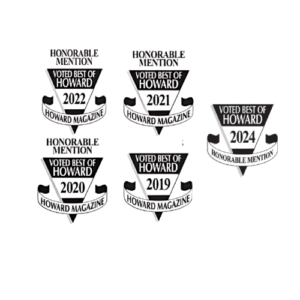Holistic Care for Women: How Physical Therapy Can Improve Women’s Health at Home
Women’s health is incredibly dynamic, with life events like pregnancy, childbirth, and childcare introducing physical challenges and new health concerns. Many women experience discomfort, pain, or dysfunction during and after these stages, but physical therapy offers a safe and effective solution to prevent and treat these conditions. At Revive Physical Therapy, we specialize in pre- and post-natal care and a variety of women’s health issues, providing targeted therapies that can improve your overall health and quality of life.
Common Women’s Health Issues and How Physical Therapy Helps
- Lower Back Pain and Sciatica: Hormonal changes and the physical shift of weight during pregnancy can lead to lower back pain, while sciatica may result from pressure on the sciatic nerve. Physical therapy offers targeted exercises and stretches to alleviate discomfort and improve posture.
- Carpal Tunnel Syndrome: Many pregnant women experience swelling that puts pressure on the nerves in their hands and wrists, causing pain and numbness. Physical therapists can teach exercises to relieve this pressure and reduce symptoms.
- Pelvic Pain and Prolapse: Pelvic pain, often due to changes in the pelvic floor muscles during pregnancy, can persist postpartum. Physical therapy can strengthen these muscles to reduce pain and prevent prolapse, a condition where pelvic organs drop from their normal position.
- Urinary Incontinence: Both during and after pregnancy, many women experience issues with bladder control. Specialized pelvic floor exercises, taught by a physical therapist, can greatly improve urinary incontinence, restoring confidence and control.
- C-Section or Episiotomy Scar Pain: Post-surgery scars, especially from C-sections or episiotomies, can become tight and painful. Through scar mobilization and gentle stretches, physical therapy can improve scar flexibility and reduce discomfort.
What You Can Do at Home
While seeing a physical therapist for these conditions is highly recommended, there are many steps you can take at home to support your health and recovery. Here are some expert tips:
1. Strengthen Your Pelvic Floor Muscles
Strengthening the pelvic floor can help with urinary incontinence, pelvic pain, and prolapse. Kegel exercises are a great starting point. To do this:
- Sit or lie down comfortably.
- Tighten your pelvic floor muscles as if you’re trying to stop urine flow.
- Hold for 5 seconds, then release.
- Repeat 10 times, up to three times per day.
In addition to Kegels, more advanced pelvic floor exercises may be recommended based on your needs. A physical therapist can provide personalized guidance to ensure you’re doing these exercises correctly.
2. Practice Good Posture
Pregnancy and carrying your child often strain the back, neck, and shoulders. Improving your posture while standing and sitting can alleviate much of this discomfort:
- Keep your shoulders back and relaxed.
- Stand tall with your weight evenly distributed on both feet.
- When sitting, place a small pillow behind your lower back to maintain the natural curve of your spine.
3. Gentle Stretching for Lower Back Pain
A daily stretching routine can help relieve lower back pain, which is common during and after pregnancy. Try this simple stretch:
Cat-Cow Stretch
Start on your hands and knees. Arch your back like a cat while pulling in your abdominal muscles. Then slowly drop your belly toward the floor and lift your head and chest. Repeat this motion 10 times to stretch and strengthen your back.
4. Scar Mobilization
If you’ve had a C-section or episiotomy, gently massaging the scar can help prevent stiffness and reduce pain:
- Wait until your scar has healed (usually 6-8 weeks postpartum) before starting.
- Use clean hands and a bit of lotion to gently massage around the scar in circular motions.
- For more specific techniques, consult a physical therapist who can show you how to safely mobilize scar tissue.
5. Stay Active
Maintaining an active lifestyle during pregnancy and postpartum can improve circulation, boost your mood, and prevent stiffness. Simple activities like walking, swimming, or low-impact exercises (as approved by your healthcare provider) can have a huge impact on your overall health and well-being.
Why Professional Care is Essential
While these at-home strategies can help, professional physical therapy offers the personalized care and expertise needed to fully address and prevent complex women’s health issues. At Revive Physical Therapy, our team specializes in treating a range of conditions, including diastasis recti (a separation of the abdominal muscles), pelvic stress fractures, and even rare conditions like Ehlers-Danlos Syndrome and vulvodynia.
We believe in empowering women to take control of their health through education, exercise, and professional treatment. Whether you’re dealing with sciatica, bladder pain, or post-surgical scar issues, our physical therapy programs are tailored to meet your needs and promote long-term healing.
Ready to Start Your Journey to Better Health?
If you’re struggling with any of the conditions discussed here or want to be proactive in maintaining your health before or after childbirth, Revive Physical Therapy can help. We offer a free 15-minute consultation with one of our licensed physical therapists to discuss your concerns and create a personalized plan. Visit our women’s health page to learn more about how we can help you live your best life.


0 Comments